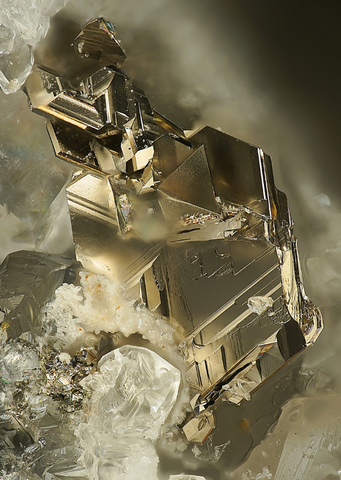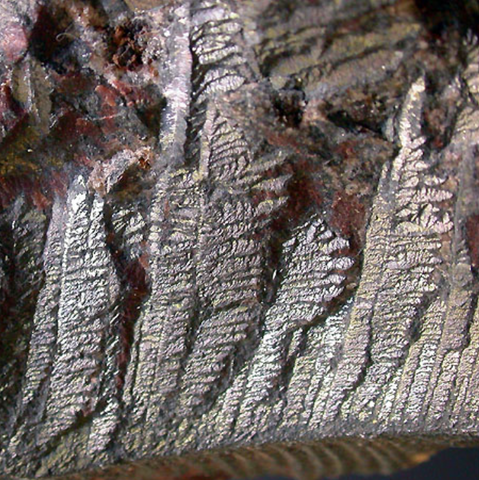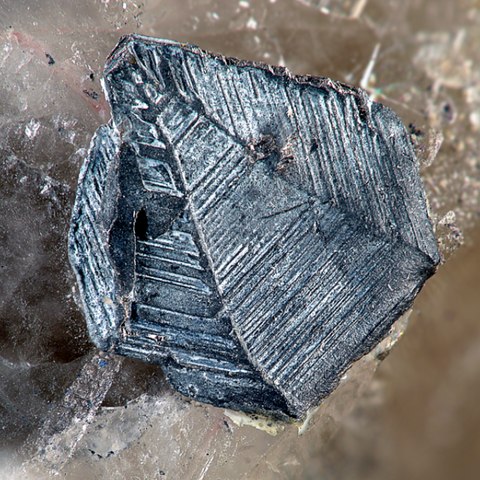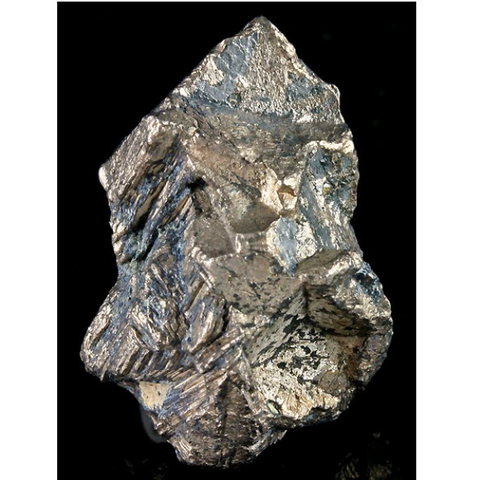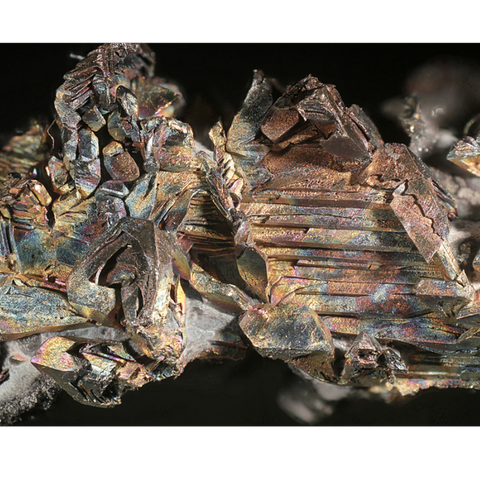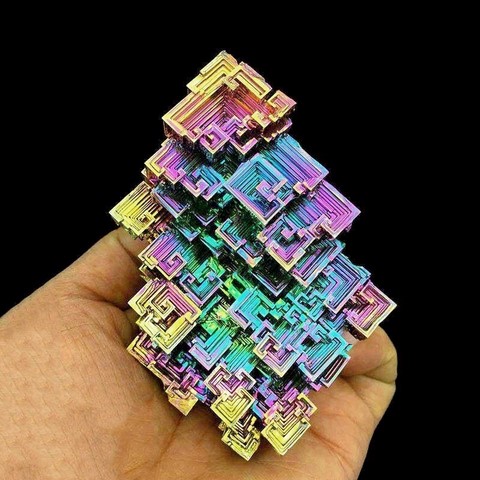 Bismuth - Encyclopedia
Bismuth - Encyclopedia
Class : Elements
Subclass : Metalloids
Crystal System : Trigonal
Chemistry : Bi
Rarity : Fairly common
Native bismuth is a fairly common mineral in high temperature hydrothermal veins associated with granite intrusions. It is commonly associated with many minerals : arsenopyrite or löllingite, wolframite, cassiterite, gold, bismuth sulphides, more rarely nickeline or rammelsbergite or even silver sulphides (Erzgebirge deposits). Three etymologies are proposed for bismuth. It may be a possible derivation from Arabic bi ismid (which has the properties of antimony). This name can also come from the Greek psimudos (silver white) or from the German weisse masse (white mass), transformed into wismuth and then bismuth. Bismuth has a bright, metallic luster and a pinkish-white hue, but it quickly tarnishes to a dirty brown, or weathers to bismutite (the carbonate) or bismite (the oxide). It usually occurs in arborescent, reticulated or shapeless masses, showing cleavages, and in dendritic, skeletal or arborescent aggregates (Schneeberg and Johanngeorgenstadt, Saxony, Germany). It is necessary in metallurgy, glassware (optics) and in the ceramics industry and it was also used for a long time in medicine until its neurotoxic character was highlighted.
Main photo : Native bismuth from Schneeberg, Saxony, Germany © Stephan Wolfsried
Bismuth in the World
Twinning and special crystallizations
Polysynthetic twins are known for this mineral species.
Fakes and treatments
Many fakes are circulating in trade fairs and on the internet, they come in the form of pseudo-cubic crystals in staircases with seductive blue, purple and yellow iridescences. If it is indeed bismuth, these crystallizations are not natural. They are crystallized in laboratories by melting and then cooling bismuth powder or ingots. The iridescence is linked to a fine film of bismuth oxides which forms on the surface of the crystals. The melting temperature of bismuth being relatively low (271°C), the experiment can be carried out in a household oven, kits are also sold for this purpose in order to grow crystals yourself at home. Due to the toxicity of this element, we do not recommend carrying out this experiment at home.
Hardness : 2 to 2.5
Density : 9.7 to 9.8
Fracture : Irregular
Trace : Gray-white
TP : Opaque
RI : -
Birefringence : -
Optical character : None
Pleochroism : None
Fluorescence : None
Solubility : Nitric acid
Magnetism : None
Radioactivity : None

